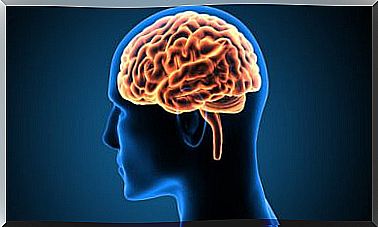8 Characteristics Of Immature People

Immature people are characterized by not having given up certain childhood wishes and fantasies. Hence, the lack of emotional regulation and self-centeredness are two of its most characteristic features.
Impulsiveness and lack of empathy are also often present in these types of people. They are carried away by whims and avoid situations that may be unpleasant or boring, to a greater or lesser extent. They even tend to impose and require others to think from their perspective.
Now, it is also important to mention that despite showing emotional immaturity on most occasions, they are not always like this. Depending on the moment, some characteristics stand out more than others. Let’s see below which ones are the most immature.
1. Lack of empathy
Immature people do not usually find it easy to put themselves in the place of others, in fact many do not even consider it. They are so used to thinking about themselves that to empathize with others they need to do a whole exercise of reflection to inhibit their egocentricity.
Due to the lack of empathy, they think that there is only one vision of the world, theirs, and as soon as another person shows disagreement they think that it is wrong or they reject it.

2. Lack of introspection
Immature people rarely spend time on self-reflection. They can spend their lives ignoring the possibility of observing themselves and learning from their mistakes. In this way, they are also unaware of their deepest needs, goals, and dreams.
3. Impulsivity
High impulsivity is one of the main characteristics of immature people. They do not usually regulate their actions or emotions and do not think about the consequences in the short or long term.
Often times, this characteristic leads to problems with others, both personally and at work, and sometimes in problems managing your resources, such as money. In this way, they may embark on purchases that they cannot assume, since they do not objectively evaluate the investments. Therefore, they often live with a large number of debts.
4. Tendency to blame others
One of the most common characteristics of immature people is the tendency to blame someone else for what happens. This is due to their belief that they do everything right and make no mistakes.
These types of people do not usually take responsibility for anything they do, think or feel. Therefore, when it suits them, they adopt a victim position.
5. Egocentrism
Immature people tend to think only of themselves and, therefore, often believe that others are also very interested in their own personality.
They call themselves special. They are arrogant and feel infallible. However, despite seeming to be confident people with high self-esteem, deep down they are very insecure. Hence, they constantly need to feel admired by others.
6. Appearance of rituals and whims
Immature people are carried away by what gives them pleasure, which can become very important in their lives.
Curiously, contrary to what happens with their impulsive actions, these whims tend to appear in a ritualized and priority way. Therefore, an immature person may be late for an appointment because he was watching his favorite series or because he was more interested in choosing his clothes well than in being punctual.

7. Special importance to the public image
Immature people tend to worry too much about situations that may negatively affect their public image. Hence, they go to certain places and undertake projects in order to improve their popularity.
As a rule, these types of people need the approval of others, as they receive it as an instant source of pleasure.
8. Aversion to boredom
Since immature people tend to seek their own pleasure and well-being, they also try to avoid situations in which they cannot encounter those types of sensations, such as when they experience boredom or discomfort.









